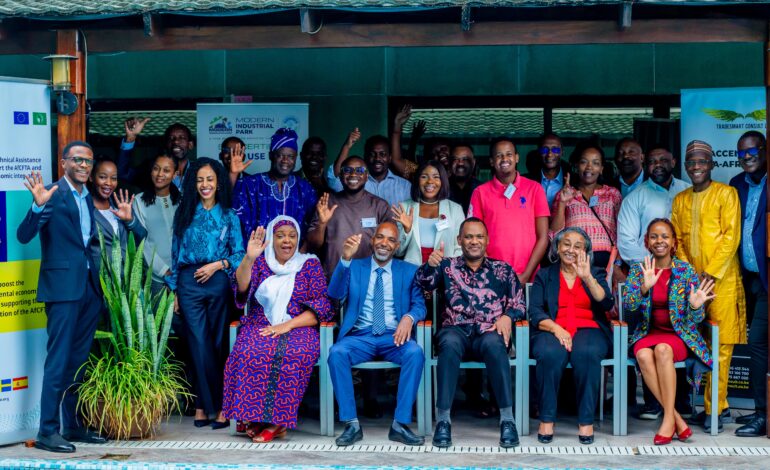The Future of Chambers of Commerce: Embracing Transformation and Supporting AfCFTA

Under the dynamic leadership of the Pan African Chamber of Commerce and Industry (PACCI), representatives from ten national chambers of commerce – We, the representatives of chambers of commerce, business council, business support organizations and other stakeholders from Ethiopia, Ghana, Nigeria, Rwanda, Tanzania, Kenya, Botswana, Zimbabwe, Zambia and the Republic of Congo gathered to address the evolving needs of our members and the broader African business – convened in Dar Es Salaam, Tanzania, to chart a renewed vision for the role of chambers of commerce in a rapidly transforming business landscape.
The meeting underscored the urgency for chambers to evolve from traditional structures into agile, modern institutions capable of responding swiftly to the changing demands of their members. With the African Continental Free Trade Area (AfCFTA) creating unprecedented opportunities for trade, investment, and integration across the continent, chambers of commerce must rethink how they support enterprises and foster sustainable economic growth.
Transforming chambers’ internal operations is essential. By embracing digital tools, streamlining workflows, and utilizing real-time data, chambers can better serve their members with timely information, personalized support, and improved access to opportunities. More efficient and technology-enabled processes also allow chambers to reduce bureaucratic bottlenecks and increase responsiveness, especially for small and medium-sized enterprises (SMEs) seeking to navigate new markets.
Beyond internal changes, chambers must strengthen their advocacy role. This involves engaging more actively with governments and regional bodies to shape policies that support business competitiveness, trade facilitation, and fair market access under AfCFTA. A modern chamber is one that listens to its members, synthesizes their needs, and champions those needs with clarity and conviction at national and continental levels.
At the same time, the transformation of chambers requires a renewed focus on capacity building. Members, particularly youth-led enterprises and women entrepreneurs, need support to understand and engage with AfCFTA processes. Chambers must lead efforts to provide training in cross-border trade procedures, digital marketing, export readiness, and enterprise formalization – key areas for success in an increasingly integrated African economy.
In supporting the effective implementation of AfCFTA, chambers are well-positioned to bridge the gap between policy and practice. Their knowledge of local business environments, paired with continent-wide networks, enables them to connect businesses across borders, identify trade and investment opportunities, and reduce the barriers that hinder participation in regional value chains. This role is vital for making AfCFTA a tangible reality for African entrepreneurs on the ground.

A Call for Collective Action and Leadership
Participants at the meeting emphasized the need for unified, strategic action under PACCI’s leadership. Chambers must work together to create common platforms for advocacy, share resources and insights, and jointly address challenges related to infrastructure, access to finance, and market integration. A united front ensures that the collective voice of African businesses is heard and that the benefits of AfCFTA are shared equitably across all member states.
Furthermore, chambers must foster a sense of solidarity that goes beyond economics. AfCFTA presents an opportunity not only for business growth but for deeper regional cohesion and mutual support. By investing in youth, empowering women, and building trust across borders, chambers can help shape a more inclusive and resilient Africa.
This high-level gathering made clear that chambers of commerce are no longer merely service providers – they are central actors in Africa’s transformation. The path forward calls for courage, collaboration, and innovation. As Africa accelerates toward deeper economic integration through AfCFTA, chambers must be the architects of this change – responsive to their members, aligned with regional goals, and committed to inclusive growth. By taking the lead in capacity building, advocacy, and regional cooperation, chambers can help unlock the full potential of Africa’s private sector and ensure that businesses, regardless of size or geography, are part of the continent’s economic renaissance.
Samirat Ntiaze, in Dar es Salam
















